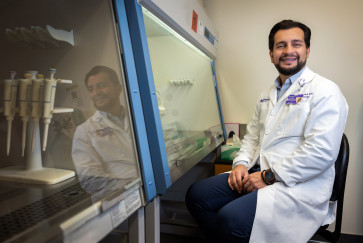On Feb. 16, the Alabama Supreme Court ruled that frozen embryos created and stored for in vitro fertilization (IVF) are children under the state’s Wrongful Death of a Minor Act.
The decision has far-reaching consequences for those currently undergoing or planning to undergo fertility treatment, providers and clinics, as it raises issues of criminal liability and obligation to preserve embryos.
Already, some Alabama fertility clinics have paused operations. A fertility treatment patient at one such clinic told the Associated Press that the ruling was a “gut punch.”
The Alabama state legislature is currently working on bills to protect IVF treatment in the state, though not all of the proposed legislation would address the issue of personhood in the court’s decision.
As it currently stands, the ruling deprives patients with cancer and others with fertility-threatening conditions with a path to building a family, said Dr. Kara Goldman, an associate professor of reproductive endocrinology and infertility at Northwestern University Feinberg School of Medicine and director of fertility preservation at Northwestern Medicine.
Dr. Goldman recently shared key takeaways from the decision with Northwestern Now.
‘Profound consequences’ for those with fertility-threatening conditions like cancer
“Reproductive-age patients with cancer have few effective options to preserve their future fertility, and it is unfathomable to take one such option away from this already vulnerable population,” Goldman said. “A profound consequence of this ruling — a ruling based merely on religious belief and without scientific merit — is an unacceptably high risk of infertility for patients with cancer and other fertility-threatening conditions.”
Traveling across state lines is not the answer
“Reproductive-aged people with cancer should be adequately counseled about the impacts of their treatment on fertility and offered fertility preservation as part of comprehensive cancer care, according to the American Society of Clinical Oncology and the American Society for Reproductive Medicine,” Goldman said. “For those suggesting that patients can merely travel across state lines to access fertility preservation care, or that patients can consider alternative methods of fertility preservation, these substitutes are both logistically and medically unacceptable.
“Patients with cancer have only a brief window to preserve fertility prior to beginning their life-saving cancer treatment, and in most cases, they begin their fertility preservation treatment almost immediately upon learning of a cancer diagnosis. Traveling is not an option due to patients’ medical complexity, the requirement to remain close to their medical team for specialized care and due to cost.”
Choosing between embryo or oocyte cryopreservation requires nuanced counseling
“The standard of care for fertility preservation is to freeze either mature oocytes (eggs) or embryos, but there is tremendous nuance in this decision-making,” Goldman said. “Patients must be thoughtfully counseled about each approach, and in many circumstances the best option for a patient is to freeze embryos. These are decisions that must remain between patients and their physicians, without interference from those without scientific knowledge.”


